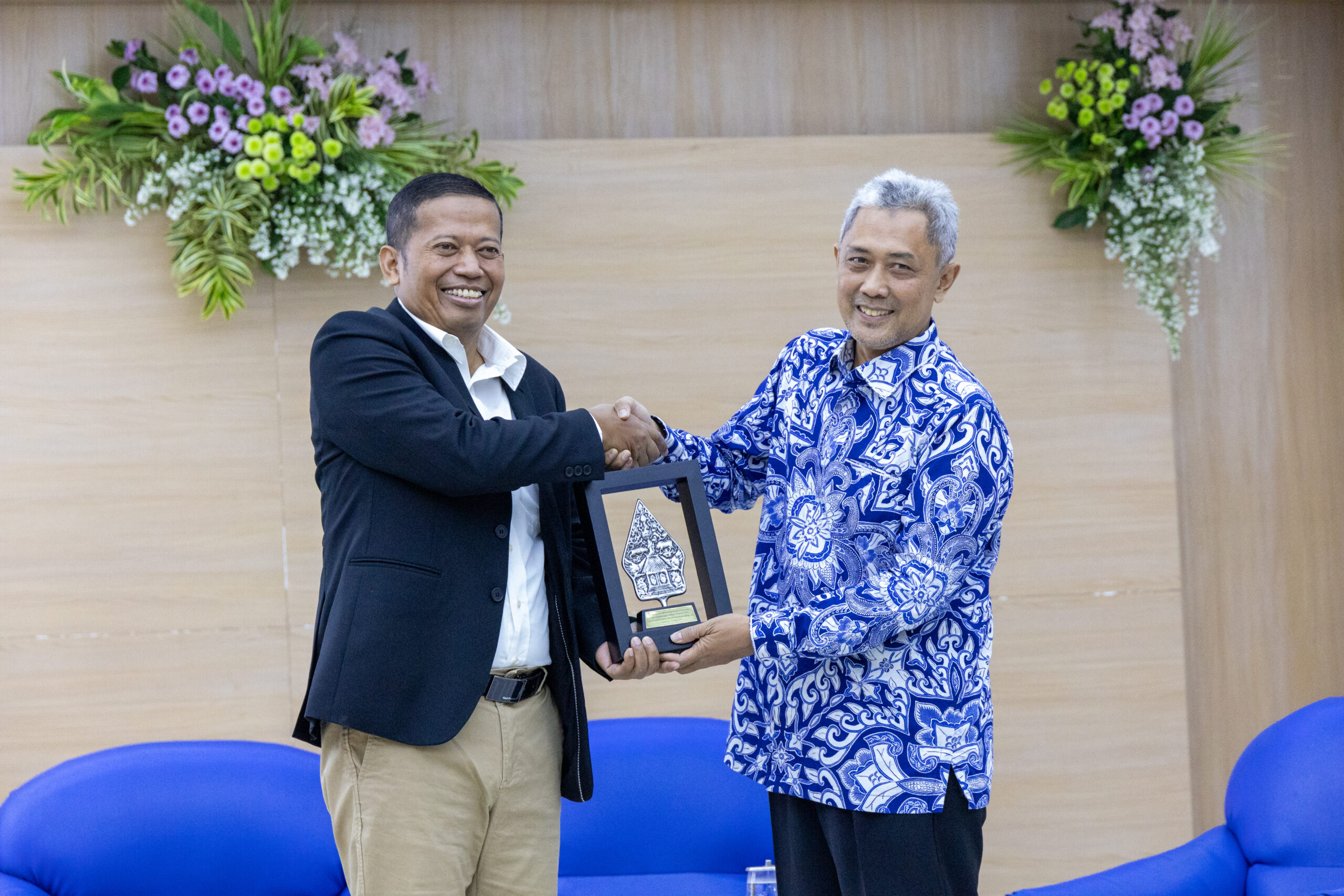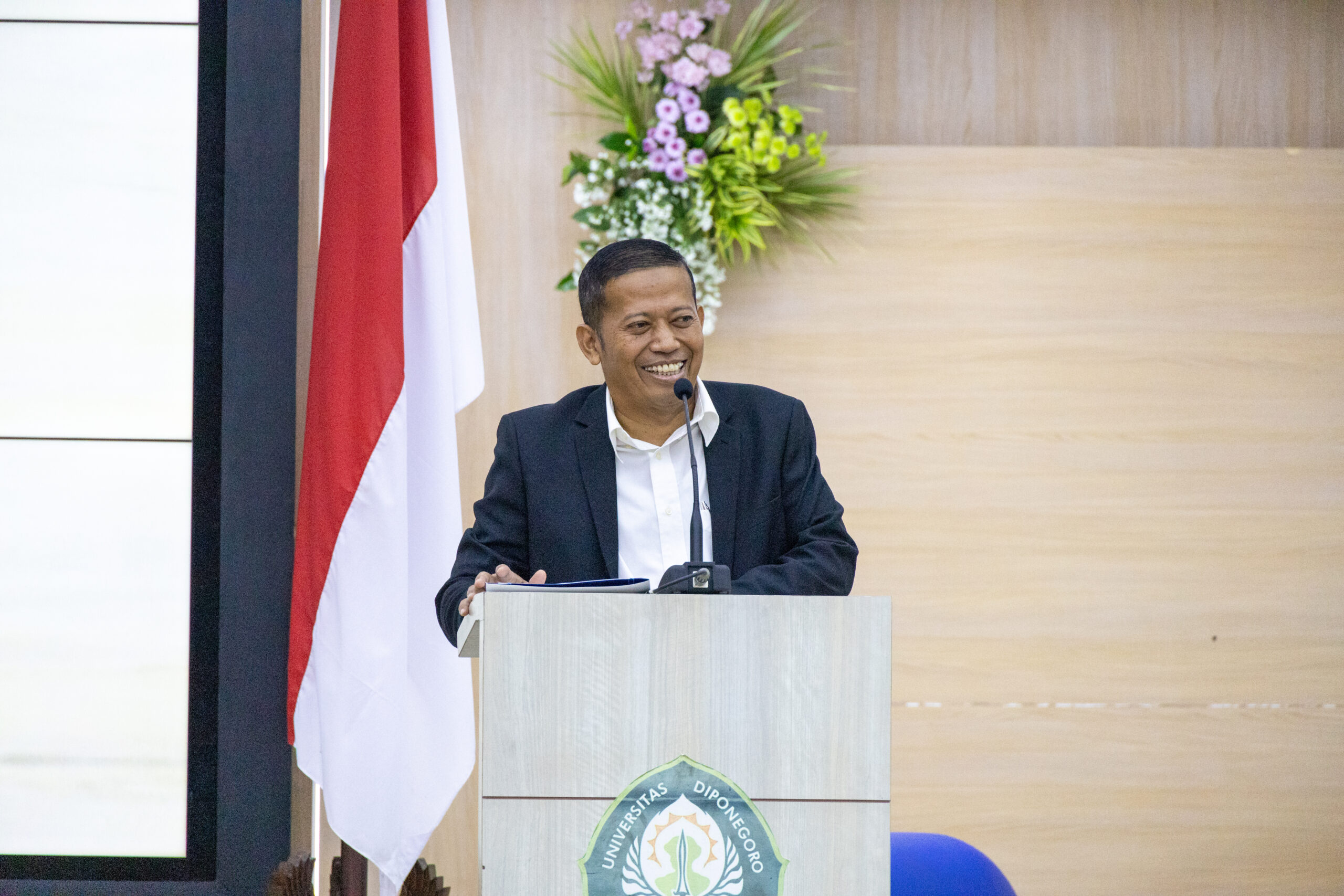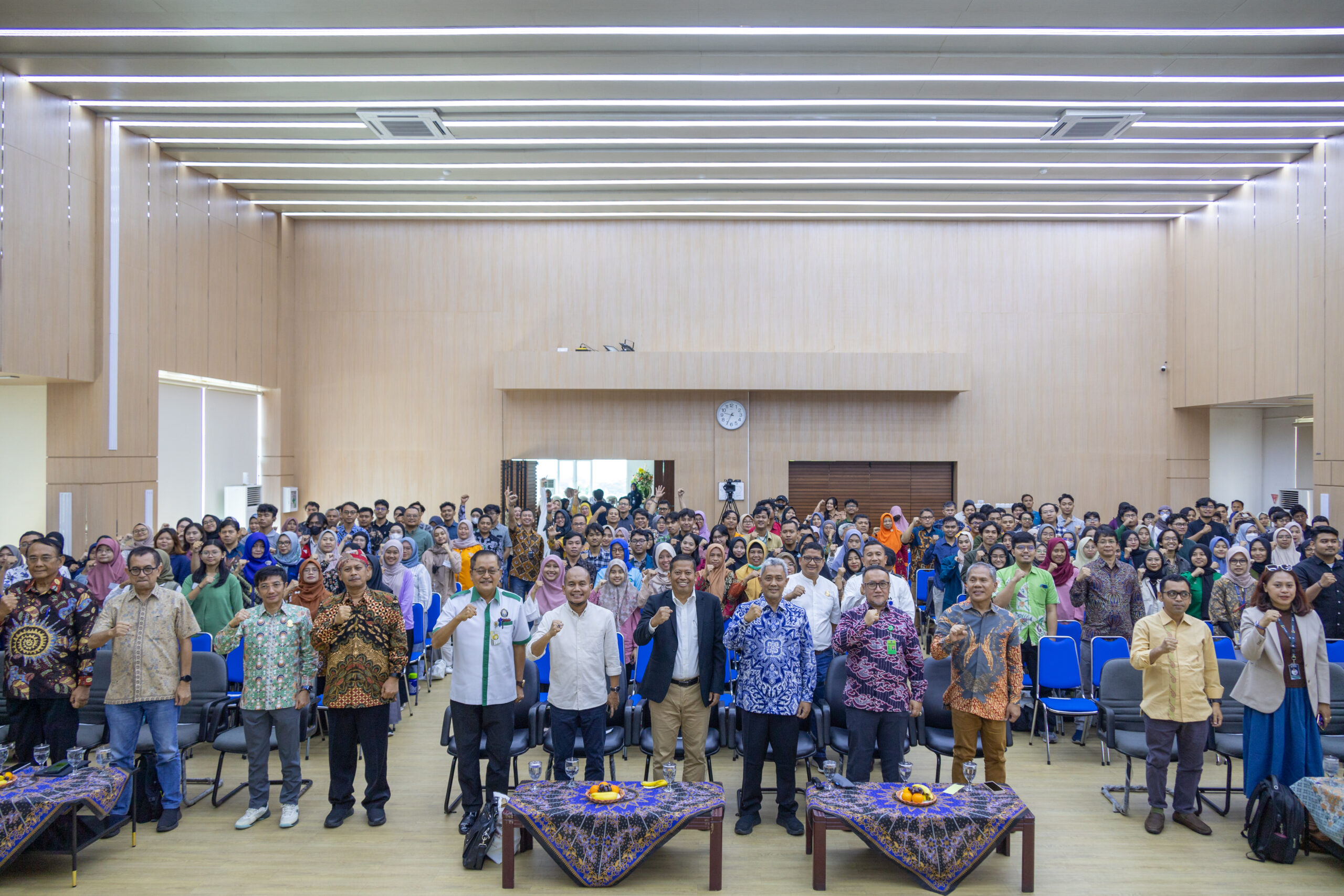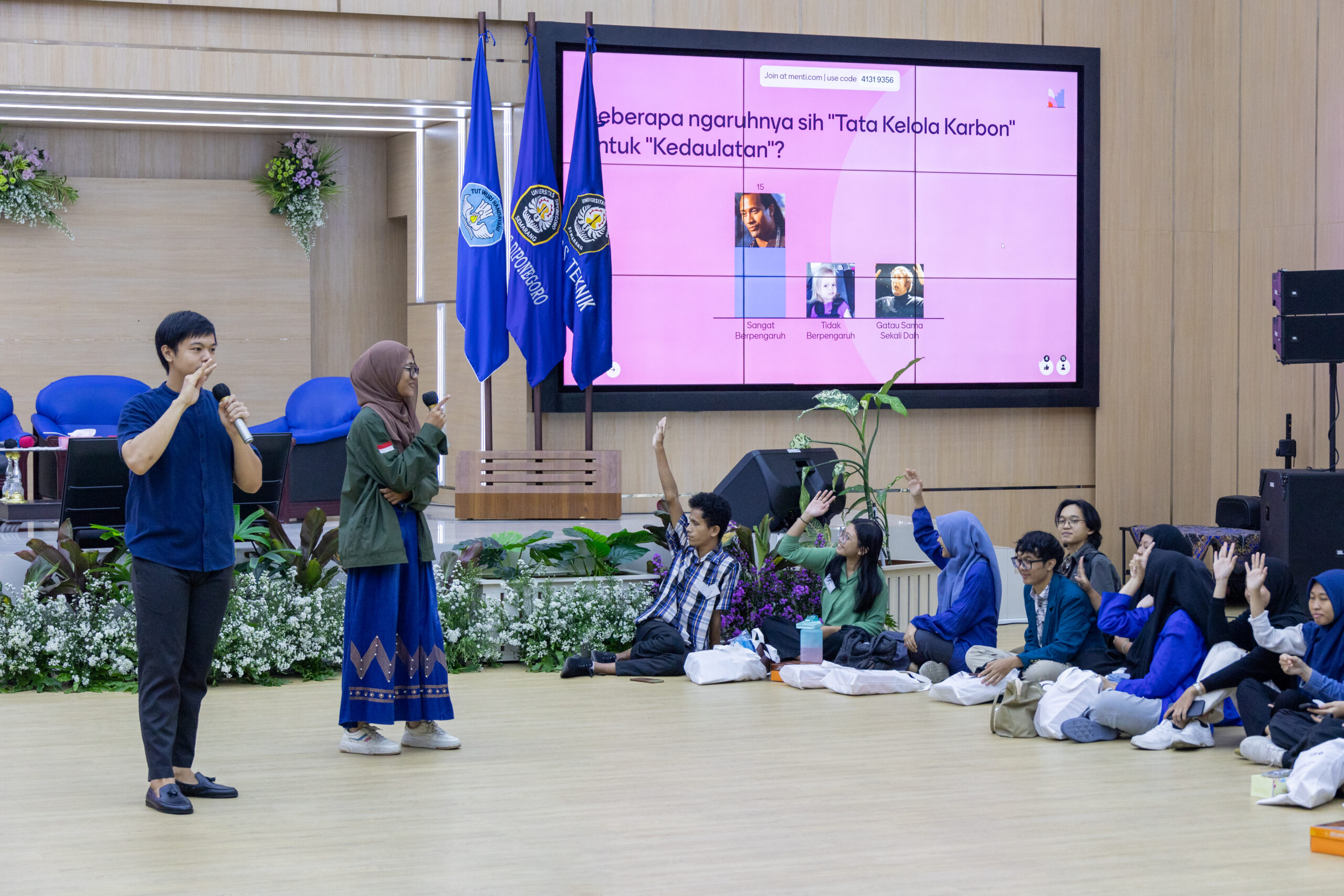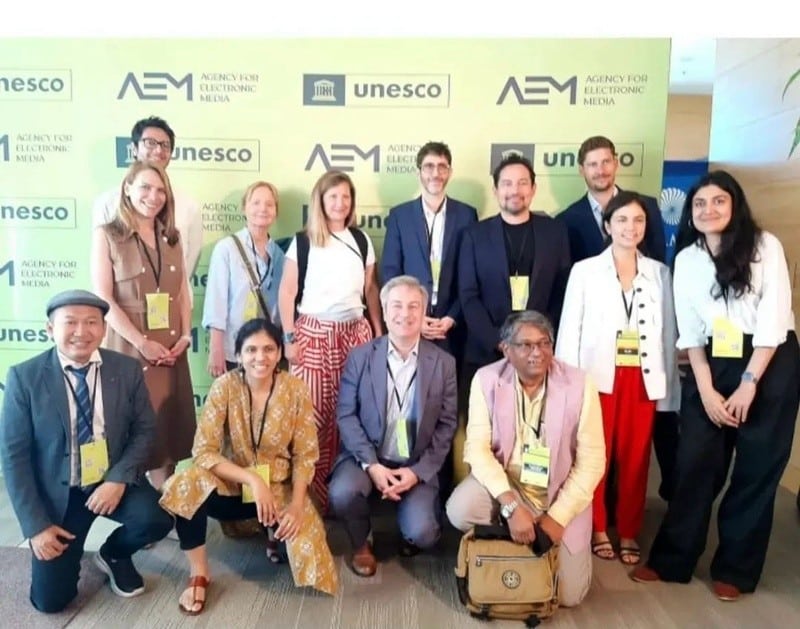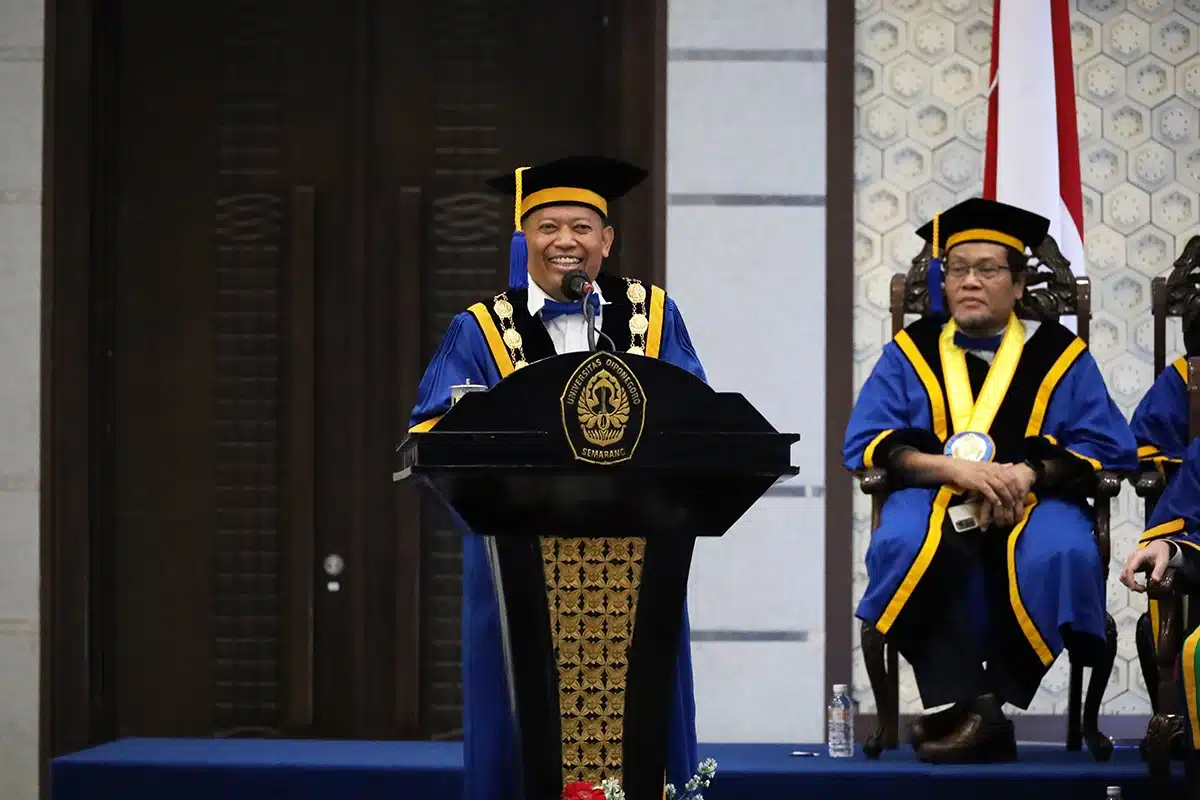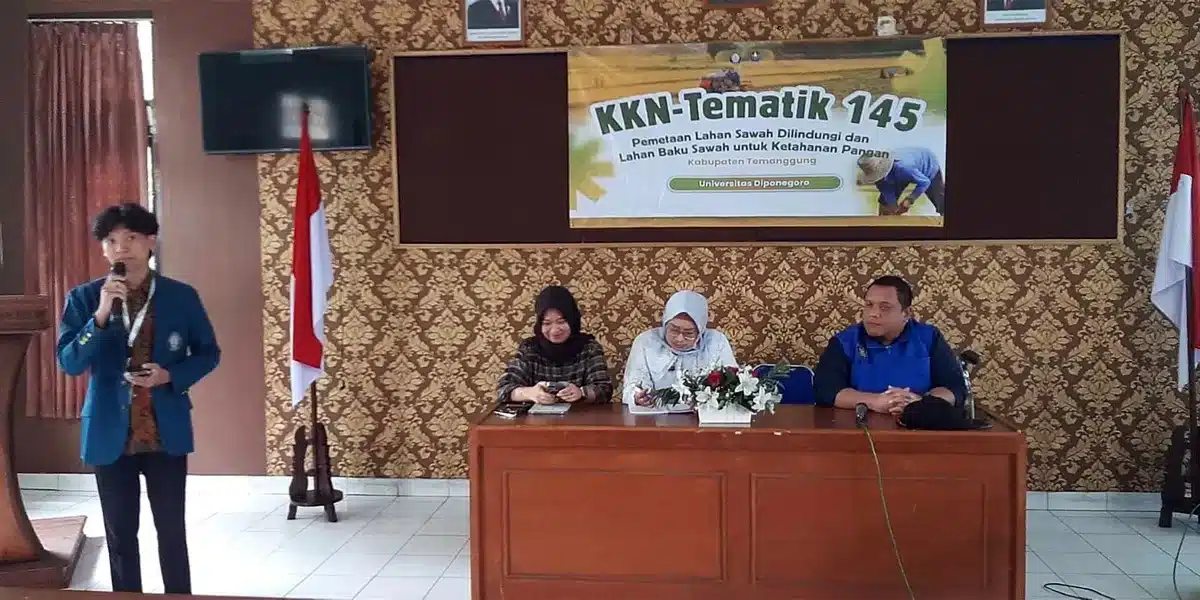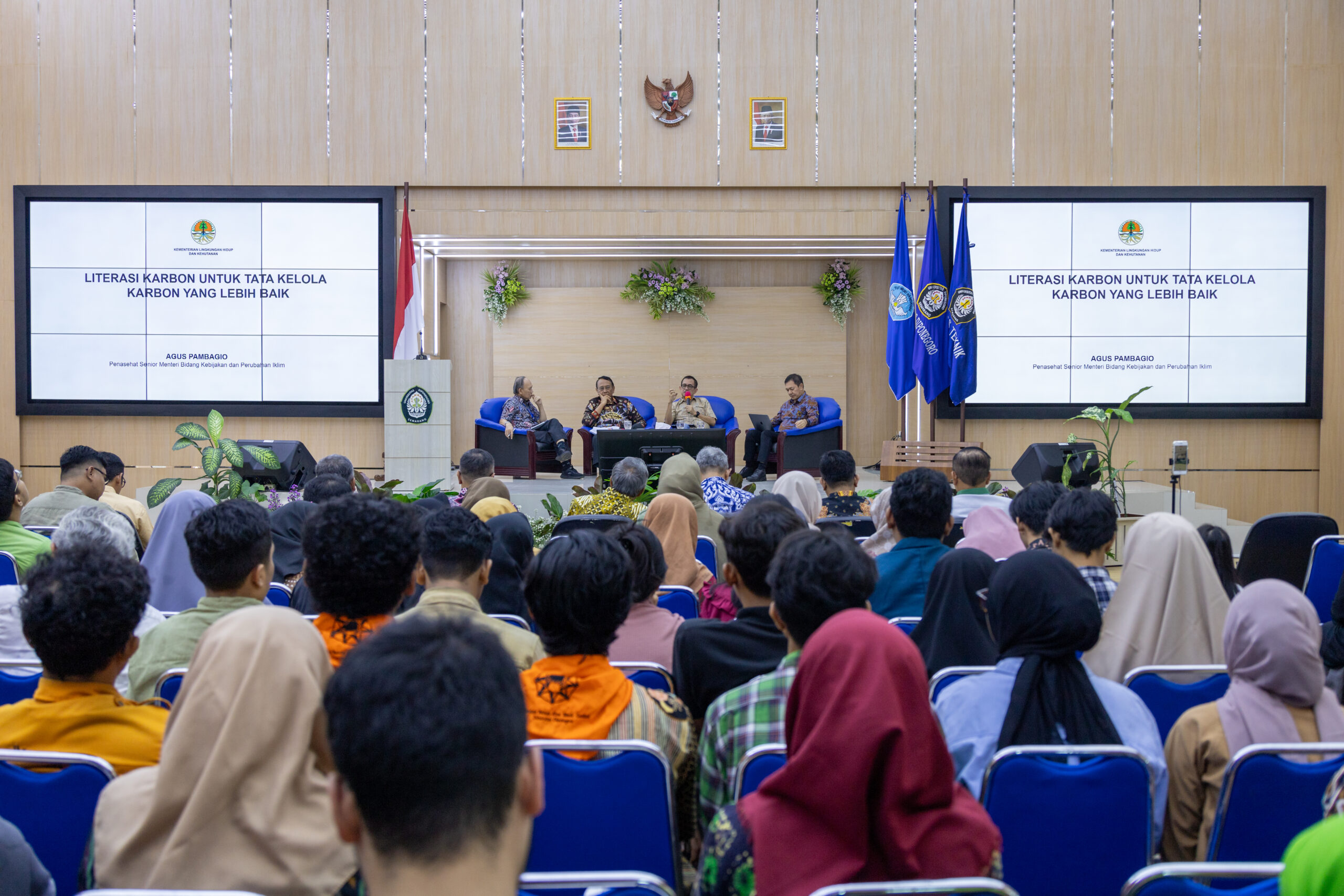UNDIP – Various efforts are made to increase collective awareness and concern, especially in public spaces, about the threats and mitigation efforts of climate change, as well as mainstreaming green perspectives (social and ecological justice). Diponegoro University was trusted to host by the Directorate General of Pollution and Environmental Damage Control of the Indonesian Ministry of Environment and Forestry, in collaboration with the Green Institute Indonesia and Green Leadership Indonesia, to organize the 2024 Road to Campus World Environment Day event with the theme “Carbon Governance and Indonesian Sovereignty.” The event was held on Friday, June 28, 2024, at the Engineering Hall, Prof. Ir. Eko Budihardjo Building, 5th Floor, Dean’s Office, Faculty of Engineering UNDIP.
The event featured a workshop followed by a Focus Group Discussion (FGD) focusing on efforts to manage carbon emissions and adapt to climate change while considering Indonesia’s sovereignty in managing its natural resources. The workshop also provided opportunities for the younger generation (Gen Z) to expand their networks alongside other stakeholders, including government, academia, and industry stakeholders.
This cross-sector collaboration is crucial for generating holistic and sustainable solutions to address climate change and promote Indonesia’s sovereignty. By applying the principle of Meaningful Youth Participation at all levels, both locally and internationally, Indonesia and the world in 2050 can face the challenges of climate change more effectively and sustainably.
Carbon governance refers to a set of rules, policies, and implementations used by organizations, governments, or communities to manage and reduce carbon dioxide (CO2) and other greenhouse gas emissions that impact climate change.
In his opening remarks, the UNDIP Rector, Prof. Dr. Suharnomo, S.E., M.Si., expressed appreciation, support, and gratitude for the Road to Campus event on carbon governance at UNDIP. He mentioned that today is a significant day for everyone: World Environment Day 2024. “The theme is very relevant and often causes cognitive dissonance. What we have in mind is what we want to do, but our behavior does not lead there,” said Prof. Suharnomo.
The higher the cognitive dissonance, the more there is a slight split of personality. In cognitive dissonance, there are excuses, so we often apologize or make excuses for many things. “Between values, perceptions, attitudes, and behaviors to support the environment, sustainability, when talking about the big picture of carbon and so on, many things need to be synchronized,” he explained.
The UNDIP Rector hopes that the more people speak up, the more voices will be heard, and the more people will know. As Tom Nichols said, in the internet era, there is an effort to reject knowledge or official sources of knowledge and information.
“We need a lot of endorsements, especially from universities, especially broadcast online, which can then become a lifestyle. Hopefully, this cognitive dissonance will gradually diminish, so we don’t need to split our personalities. The big picture is that besides growing, hopefully, it will not always be in a diametrically opposite trade-off position. Still, we will find patterns that make growth, sustainability, and preservation meet,” said Prof. Suharnomo.
Also present at the event was the Director General of Pollution and Environmental Damage Control, Ir. Sigit Reliantoro, M.Sc., who also served as the keynote speaker, presented the topic “Policies and Regulations for Carbon Governance in Indonesia and the Role of Industry and Local Governments in Achieving GHG Emission Reductions.” He mentioned that governance needs a structure of processes or actions where there is interaction between the private and public sectors or the state to achieve goals. “In climate change, governance features two main aspects: climate change adaptation and mitigation,” he explained.
Based on the statement of the Indonesian President, Joko Widodo, at the World Leaders’ Summit on Climate Change in Glasgow in 2021 regarding Indonesia’s commitment to Carbon, namely carbon markets and carbon values must be part of the efforts to address climate change issues. “Therefore, the latest policy from the Indonesian President on the economic value of carbon is that if we look at mitigation, it requires extraordinary funding, so we capture opportunities to revive the carbon economy and then support mitigation and adaptation activities domestically,” said Sigit.
During the workshop session, there were two-panel sessions. The first session, with the theme “Carbon Governance, Diplomacy, and Indonesian Sovereignty,” featured speakers such as Prof. Dr. Makarim Wibisono, MA., an expert in Diplomacy and Chair of the Non-Judicial Settlement Team for Serious Human Rights Cases, discussing “Carbon Governance and Indonesian Diplomacy on the International Stage”; Dr. Wahyu Marjaka, M. Eng., Director of Sectoral and Regional Resource Mobilization, PPI., explained “Implementation of the Economic Value of Carbon in Efforts to Achieve Indonesian Sovereignty”; and Dr. Agus Pambagio, Public Policy Observer, discussed “Carbon Literacy for Better Carbon Governance.”
The second session, themed “The Role of Multiple Stakeholders in Fair Carbon Governance,” featured speakers such as Dessy Ariyanti, S.T., M.T., from UNDIP SDG’s Center, discussing “UNDIP’s Contribution as the 2nd Most Sustainable University in Indonesia in Climate Change Control”; Dani Setiawan, Chairman of the Indonesian Traditional Fishermen Association, discussing “Viewing Carbon Governance from a Climate Justice Perspective and the Potential of Blue Carbon”; and Athiya Ramadhian Khairunnisa, an alumna of Green Leadership Indonesia, discussing “Young People’s Views on the Concept of Carbon Governance for Indonesian Sovereignty.” (DHW & Ani – Public Relations)
